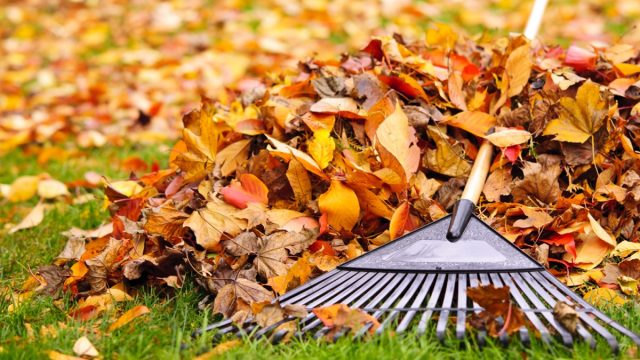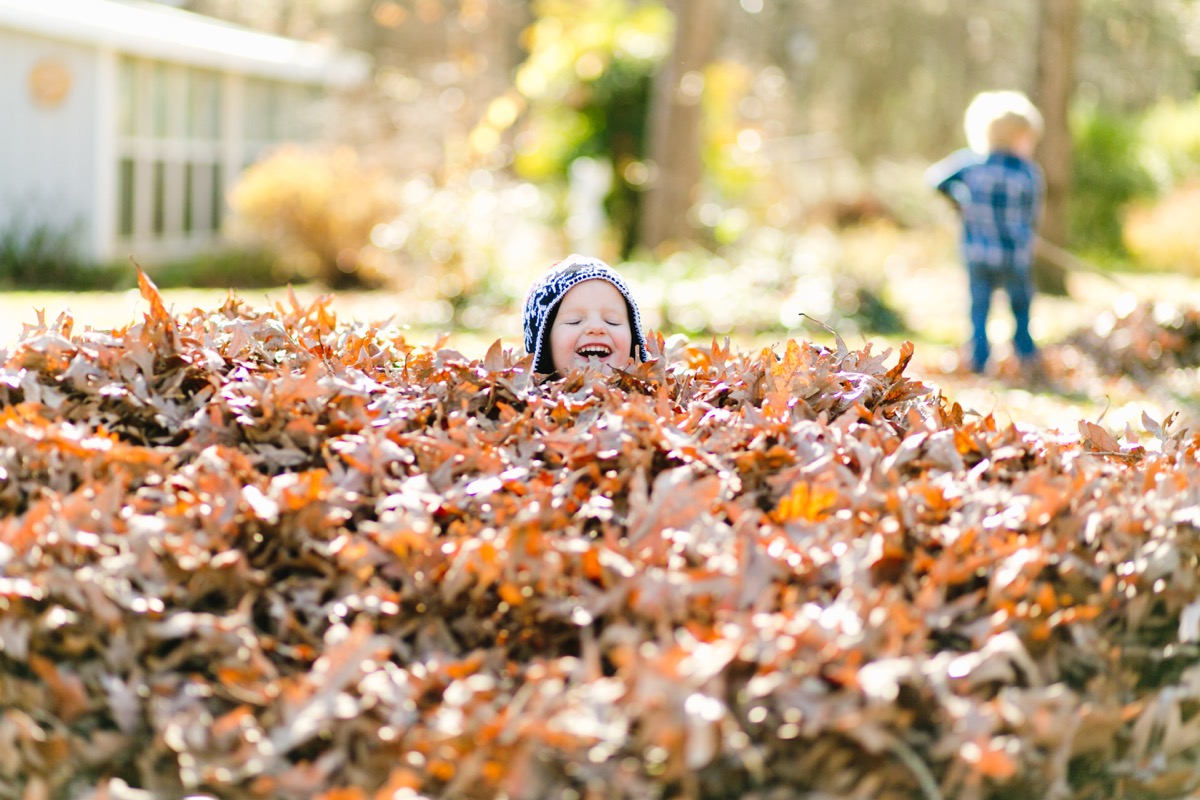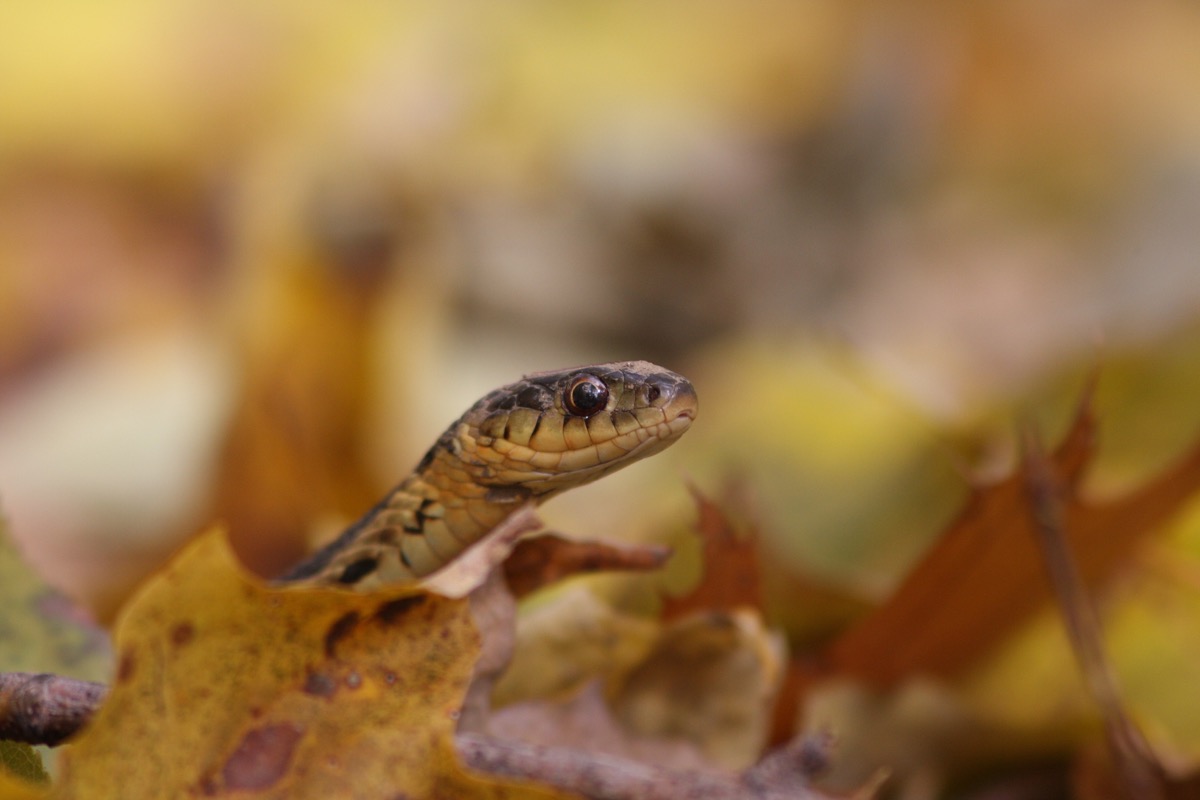Best Reasons to Stop Raking Your Leaves, Experts Say

When you picture your lawn in pique condition, chances are you’re imagining a manicured plot of land, free of leaves and other debris. However, naturalists are pushing back on the assumption that raking your leaves is always best. They say there are some major benefits to skipping the fall chore, and that your yard will thrive in the long run when you actually do less. Read on to find out what you stand to gain by leaving your leaves alone—and the one drawback to be prepared for.
RELATED: Gardening Influencer Reveals the #1 Plant to Give Your Yard Beautiful Color.
Leaving your leaves is great for your soil.

Many people understandably rake their leaves out of concern for their grass. While it’s true that a thick pile of leaves can block sunlight and inhibit lawn growth, experts now say that leaving some leaves on the ground is actually great for your soil. That’s because, as the leaves decompose, they re-fertilize the earth with important nutrients. They also provide a natural layer of coverage and protection for trees’ root zones, The New York Times reports.
RELATED: 6 Ways to Make Your Lawn Maintenance-Free.
It’s also essential to the life cycle of certain animals.

It’s not just your soil that will benefit from you leaving your leaves alone. Many animals rely on leaf piles for food and safety.
“When we rake and blow leaves we tend to see only the eyesore, unaware of the wildlife that flourishes beneath,” explains U.S. Fish and Wildlife Services. “Leaf litter is a great source of nutrients for insects including earthworms, snails and millipedes. These insects consume the decomposing leaves and they in turn become a buffet for an array of bird species like blue jays and chickadees.”
Larger animals including snakes, salamanders, turtles, and toads also rely on leaf piles for safe cover from predators, their experts add. Additionally, many species of moths, butterflies, and other pollinators lay their eggs in leaves—meaning they require leaves to be able to complete their life cycle.
RELATED: 6 Ways to Pest-Proof Your Grass, According to Landscaping Experts.
There’s one drawback to leaving your leaves.

An important thing to consider before leaving your leaves is that ticks tend to thrive in leaf piles. While this shouldn’t necessarily deter you from trying out this natural form of composting, it does mean you should take some added precautions in any yard that hasn’t been raked.
Before spending time in a leaf-laden area, the Environmental Protection Agency (EPA) recommends using an EPA-registered insect repellent containing DEET, picaridin, IR3535, Oil of Lemon Eucalyptus (OLE), para-menthane-diol (PMD), or 2-undecanone.
You should also perform regular tick checks, looking closely under the arms, in and around the ears, inside the belly button, back of the knees, in and around hair, between the legs, and around the waist, according to the CDC.
RELATED: 5 Reasons Mowing Your Lawn Makes You Happy, According to Science.
Here’s what to do if you’ve got leaf-raking rules.

If you do happen to live in a home or neighborhood that enforces leaf-raking rules, there may be a middle ground. Consider raking your leaves from your lawn into garden beds, tree beds, or compost piles.
Another way to maintain the benefits of leaving your leaves without having a deep leaf layer on your lawn is to mow directly over them. By breaking them up into smaller pieces, they should decompose faster—and they’ll look less conspicuous in the meantime.
Jeremy Yamaguchi, CEO of Lawn Love, endorsed this particular method while speaking with Livingetc. “While you may have to go over some areas multiple times, it’s still a whole lot easier than raking them all up! Plus, it will benefit your yard in the long run,” he said.
For more home and garden tips sent directly to your inbox, sign up for our daily newsletter.